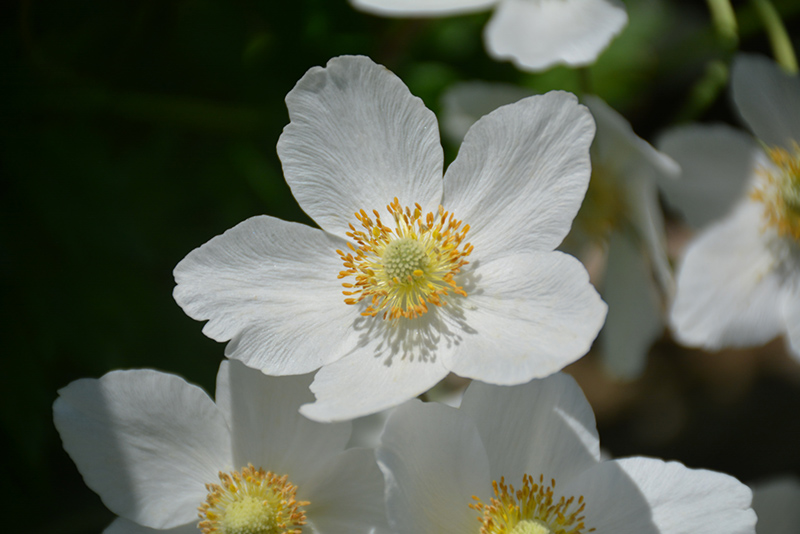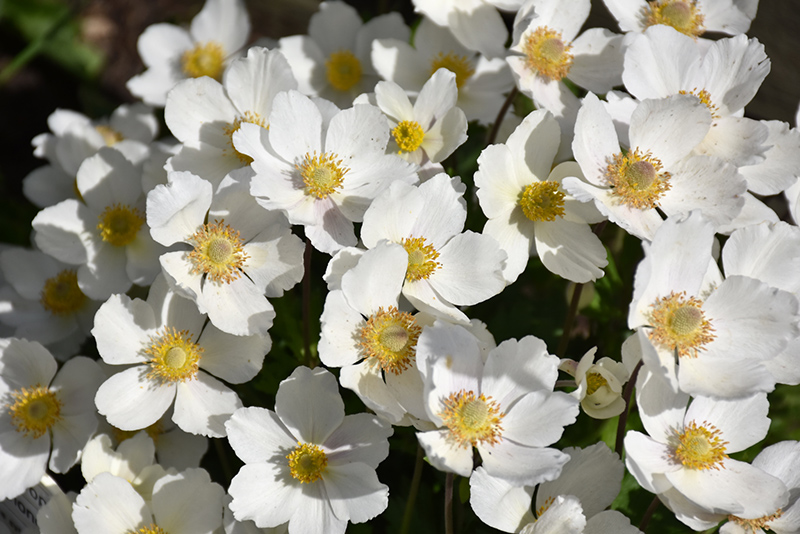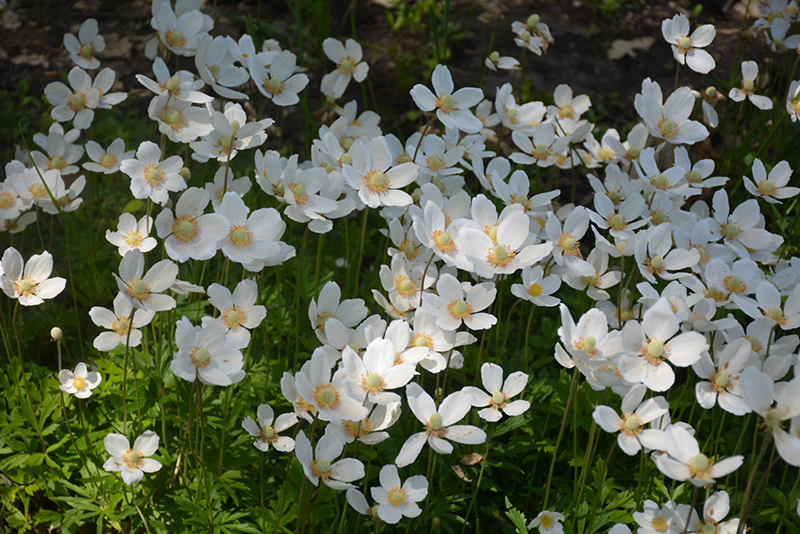Plantfinder
siteadmin2023-06-04T13:10:09-03:00
Height: 15 inches
Spread: 18 inches
Sunlight:
![]()
![]()
Hardiness Zone: 2b
Other Names: Anemone, Poppy Windflower, Grecian Windflower
Description:
From gardens to fresh-cut bouquets, this selection is perfect for adding pops of color throughout the spring and fall; features single to double blooms that range in color; low maintenance, deadhead spent blooms
Ornamental Features
Windflower has masses of beautiful white daisy flowers with yellow eyes at the ends of the stems from mid spring to early summer, which are most effective when planted in groupings. Its deeply cut ferny leaves remain forest green in colour throughout the season.
Landscape Attributes
Windflower is a dense herbaceous perennial with a more or less rounded form. Its relatively fine texture sets it apart from other garden plants with less refined foliage.
This plant will require occasional maintenance and upkeep, and may require the occasional pruning to look its best. Deer don't particularly care for this plant and will usually leave it alone in favor of tastier treats. Gardeners should be aware of the following characteristic(s) that may warrant special consideration;
- Spreading
- Self-Seeding
Windflower is recommended for the following landscape applications;
- Mass Planting
- General Garden Use
- Groundcover
- Naturalizing And Woodland Gardens
Planting & Growing
Windflower will grow to be about 12 inches tall at maturity, with a spread of 18 inches. Its foliage tends to remain dense right to the ground, not requiring facer plants in front. It grows at a fast rate, and under ideal conditions can be expected to live for approximately 10 years. As an herbaceous perennial, this plant will usually die back to the crown each winter, and will regrow from the base each spring. Be careful not to disturb the crown in late winter when it may not be readily seen!
This plant does best in full sun to partial shade. It prefers to grow in average to moist conditions, and shouldn't be allowed to dry out. It is not particular as to soil type or pH. It is somewhat tolerant of urban pollution. This species is not originally from North America. It can be propagated by division.
A NetPS Plant Finder tool


